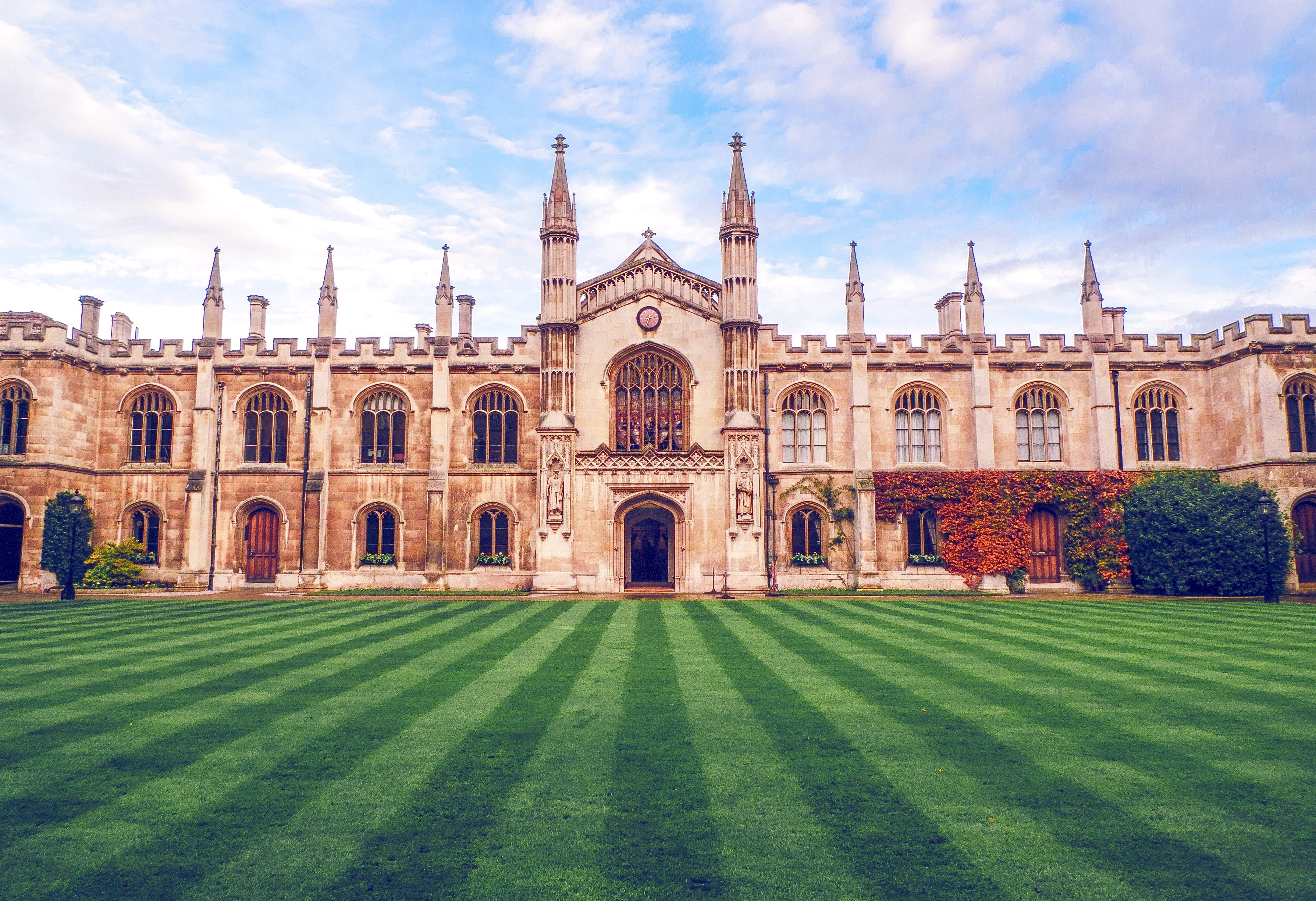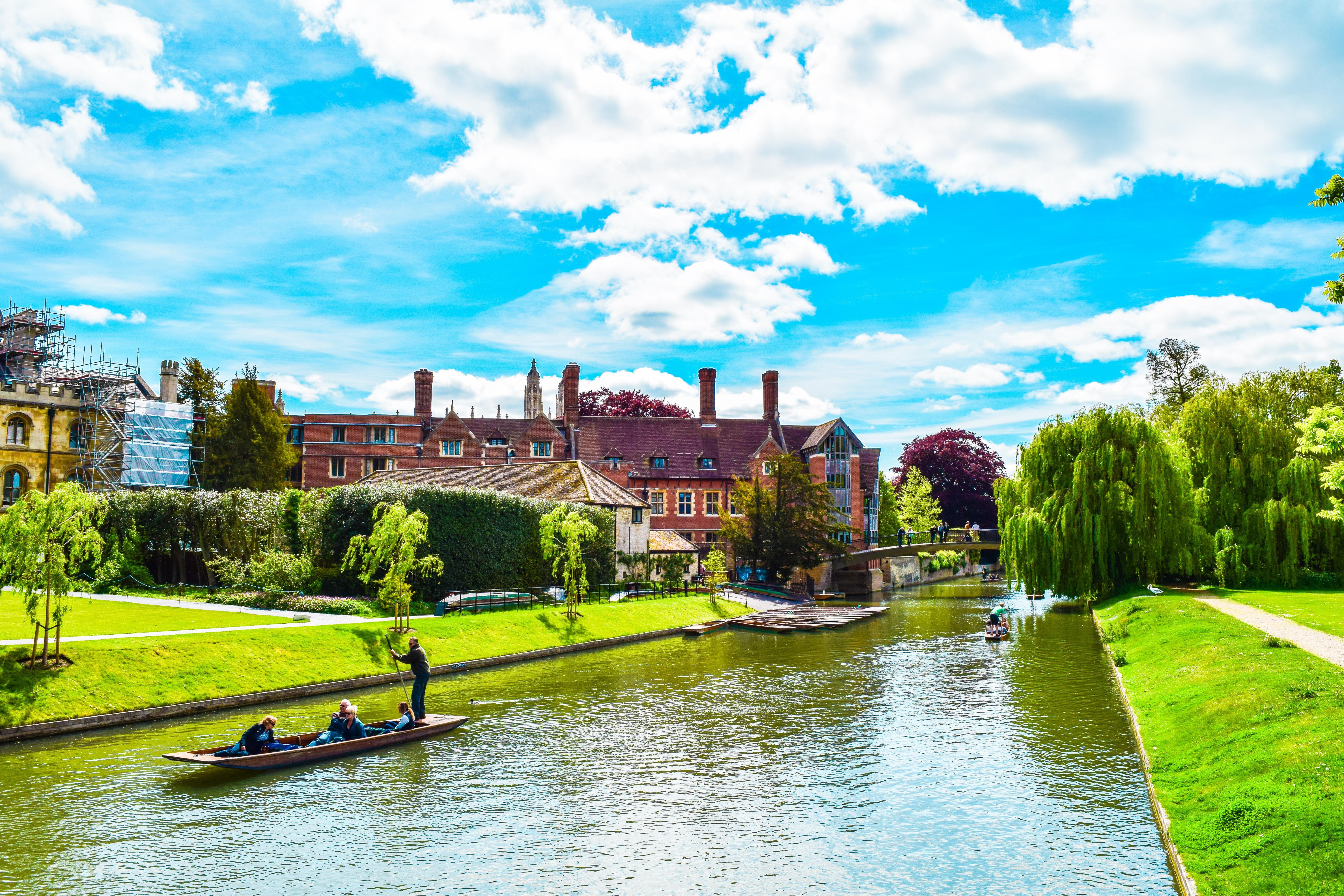Table of Contents
Cambridge acceptance rate: Cambridge University was started in 1209, making it the second-oldest English-speaking university in the world. The University of Oxford is the oldest. Cambridge is like the mother of all universities in many ways. It’s where John Harvard went to school before he started, the school that bears his name and becomes a model for most institutions in the US.
Cambridge is unlike most modern universities, which have schools and satellite campuses. Instead, it is made up of 31 colleges, and many of them have a lot of freedom. Even though these colleges have the Cambridge name and the prestige that comes with it, they have their own goals and rules. Also, there isn’t one main campus. Instead, the school is spread out in different buildings and centers all over Cambridge.
The school’s reputation stems partly from its intensive approach, which emphasizes small-group instruction in which groups of one to four students collaborate under the supervision of instructors.
Aside from teaching and age, several other factors keep Cambridge among the world’s elite. Cambridge University is not only the world’s oldest university press but also the 2nd largest.
Cambridge Assessment administers exams to over eight million students worldwide. Cambridge is home to 8 cultural and scientific museums, including the Fitzwilliam Museum, and over 100 libraries. This is all supported by a £2.192 billion endowment.
University of Cambridge Acceptance Rate

Cambridge acceptance rate: In the most recent application year, just over 17,000 people applied to study at Cambridge. Only 3,497 applications were accepted. That’s a 21% Cambridge acceptance rate, meaning only one out of every five applicants will be admitted.
This year, the University of Cambridge has approximately 21,650 students enrolled. That’s a lot of students, but as you might expect from a very old and highly respected university, they’re very selective when sending out admissions offers.
However, hopefuls can boost their chances by focusing on their interests. Academics emphasize specialization, even though schools like Cambridge value a well-rounded individual. Scholars mean that strong academics have areas of expertise in which they know the most important elements of their field and the lesser-known and foundational parts.
Anyone enrolled in a liberal arts program, for example, will read classic works of American literature like the scarlet. On the other hand, someone who focuses on American literature will read lesser-known books by those authors and important foundational books that most people are unaware of.
As this description demonstrates, a strong focus indicates that you are an expert. The knowledge demonstrates to an admissions committee that you are knowledgeable and have something to offer the community. Your application will demonstrate to Cambridge that you will contribute to the community with this knowledge and, more importantly, achievements such as awards.
Cambridge acceptance rate: University of Cambridge Tuition
As previously stated, Cambridge possesses some of the most impressive resources of any institution. As a result, attending Cambridge is not easy.
Families starting in 2021 will pay £9,250 annually for Home students, as the school refers to students from the United Kingdom.
Furthermore, several factors could influence interest rates in the coming years. The UK government determines tuition rates for national schools such as Cambridge each year; thus, future tuition rates have not yet been determined. Also, because the UK just left the European Union, the government hasn’t decided how much European citizens will have to pay for College.
Tuition rates for international students vary according to a degree. These range from £22,227/year for an international student studying Archeology to £58,038/year for an international student studying Veterinary Medicine.
In addition, international students (or home students pursuing a 2nd degree) must pay an annual fee to Cambridge College, where they study. The Tuition fees for studying at Trinity College range from £9300 to £10,470 per year for a degree at King’s College.
That’s a lot of cash. But both students from the United States and other countries can apply for financial aid and scholarships. This help can come in many forms, from work-study to full scholarships. These benefits vary, of course, depending on things like citizenship, course of study, and where you go to College. So go to the financial aid office often to ensure you have everything you need.
University of Cambridge Requirements

Cambridge acceptance rate: Every school screens applicants to ensure that everyone will be able to succeed in their programs, but Cambridge university takes it more seriously than most. Cambridge works with diverse colleges and programs to place students in the right programs. Not surprisingly, the requirements change based on where the applicant is from.
Cambridge expects students in Year 12 & Year 13 from the UK to take three to four AS and A-Level classes, particularly in their major subjects. The overall GPA should be A*AA or A*A*A, but most colleges allow for variation when necessary. Students show their breadth of knowledge by taking three or four A-level courses, but they can also focus on their main study area.
Although the school recognizes that all students may have bad testing days and does not penalize students who need to redo an exam to replace a poor grade, it does express concern for students who have multiple re-tests on their records. Because Cambridge Colleges programs rarely offer exam resits, they prefer students who perform well on their first exams.
Although the university accepts students from all over the world, these decisions are usually made individually. There is no single set of criteria for all non-UK applicants. Cambridge recommends that students applying from the United States take 5 or more AP tests throughout high school & score well on the ACT & SATs. Cambridge recommends that students earn a combined SAT score of 1460-1500 and an ACT score of 32-36 to be competitive.
The university takes an individual approach, which means that a specific college or program can modify requirement standards to meet the needs of a specific student.
University of Cambridge Notable Alumni
As one of the world’s premier institutions, it’s no surprise that Cambridge has produced leaders in their fields, such as physicist Neils Bohr, illustrator Quentin Blake, and comedian and actor Sasha Baron Cohen.
Cambridge has educated 121 Nobel laureates, 14 British prime ministers, 11 Fields Medal recipients, and 7 Turing Award winners.
These Nobel laureates include DNA structure researchers Maurice Wilkins and Francis Crick, astrophysicist Subrahmanyan Chandrasekhar, philosopher and public intellectual Bertrand Russell, and Prime Ministers William Lamb, Robert Walpole, and Stanley Baldwin were all educated at Cambridge.
However, Cambridge Alumni are not limited to “serious” fields. Cambridge college educated some of the most prominent names in the arts and entertainment. Cambridge alums include comedians Richard Ayoade and John Oliver, Monty Python members John Cleese, Graham Chapman, and Eric Idle.
Hugh Laurie, Tilda Swinton, Emma Thompson, and Thandie Newton are all graduates of Cambridge colleges. Vladimir Nabokov, J.G. Ballard, E.M Forester, and Jin Yon are among the literary figures from Cambridge, as are Sir Roy Yorke Caine, Lord Antony, Armstrong-Jones, and Wuon-Gean Ho.
When it comes to athletics, the school hasn’t been sluggish. Harold Abrahams, Stephanie Cook, and Peter Jacobs were all Olympians who attended Cambridge colleges. Professional footballers such as William Leslie Poole, Steve Palmer, and Alfred Lyttelton attended the school, as did cricketers Ted Dexter, Peter May, and Ranjitsinhji Vibhaji II.
This list is a small sample of the University of Cambridge’s excellence. For every person named here, hundreds more have used their education to make a difference in the world in various ways.
Cambridge acceptance rate: University of Cambridge Ranking

Cambridge University is widely regarded as one of the best institutions in the world, as evidenced by its impressive alum list. The Cambridge Colleges have established themselves as world leaders with over 800 years of experience.
Cambridge ranks in the top ten of nearly every category on the prestigious US News & World Report list. It ranks eighth among Global Universities but second among Best Global Universities in Europe and Best Global Universities in the United Kingdom. According to the magazine, Cambridge is ranked among the top five in many subjects, including Biology and Chemistry, Arts and Humanities, Space Science, and Chemistry.
Almost every other observing body agrees with Cambridge. According to topuniversities.com, Cambridge is tied for third best in the world with Stanford University, trailing only the number one Massachusetts Institute of Technology and the number two University of Oxford.
Cambridge is ranked sixth in the Times World University Rankings, with special recognition for its excellent research, professionals, citations by academics, and international outlook. The organization ranked Cambridge among the top five in the world in several categories – Arts and Humanities, Life Sciences, and Business & Economics.
Finally, Cambridge is ranked fourth in the world by the Center for World University Rankings, with an overall score of 94.1. The Center ranks Cambridge first in the United Kingdom, fourth in the world for educational quality, and fifth in the world for faculty quality.
While there may be some disagreement about specific placements, these lists show that all international organizations agree that the University of Cambridge is among the world’s best schools.
What Are the Colleges of the University of Cambridge?
As previously stated, Cambridge university is a collection of smaller Colleges rather than a centralized institution. The College is made up of 31 colleges. Although these are affiliated with the University of Cambridge and share the larger institution’s reputation and structure, they operate independently with their administrations, standards, and policymakers. As a result, the various Colleges can differ greatly from one another.
Cambridge Colleges are divided into “old” and “new.”
All of the old colleges were established between 1284 when Peterhouse College was established, and 1584, when Emmanuel College was established.
Among the other historic schools are:
- King’s Hall
- Michaelhouse
- Clare College
- Pembroke
- Gonville and Caius
- Trinity Hall
- Corpus Christi College
- College of St. Mary Magdeline
- Christ’s College
- King’s College
- Queen’s College
- St. Catherine’s College
- Jesus College
When Downing College opened in 1800, it was the first new College in Cambridge in almost two and a half centuries. Homerton College was started in 1796, but it didn’t move to Cambridge until 1894, and it didn’t become a traditional college until 2010. Even though it’s in a new category, it’s still pretty old
Other new Colleges include the 1st women’s school, Girton College, Fitzwilliam College, Newnham College, Selwyn College, Hughes Hall, St. Edmunds College, Murray Edwards College, Churchill College, Darwin College, Wolfson, Lucy Cavendish, Clare Hall, Robinson College, Robinson College, Robinson College.
Cavendish College was established in 1873 but closed its doors in 1992.
History of the University of Cambridge – When Was It Founded?

Although stated, it bears repeating: the University of Cambridge was established in 1209 when a group of scholars left the Oxford university to establish a new academic institution.
Cambridge had earned a reputation for academic rigor thanks to the work of monks serving in the church of Ely, making it an ideal location for a new university.
Even as some scholars moved on to Paris and Reading, the University of Cambridge grew, eventually receiving a charter from King John in 1231 (which allowed the institution to discipline its members and be exempt from some taxes).
Pope Gregory IX granted Cambridge graduates the right to teach throughout Europe in 1233, the next major accreditation. Later, Popes Nicholas IV and John XXII added to the school’s credibility, elevating its reputation for research and teaching.
Hugh Balsham, Bishop of Ely, founded Peterhouse, the first Cambridge College, in 1284. Several other Colleges, like Peterhouse, were founded over the centuries by members who wanted to pray for the souls of their founders.
However, due to the rise of Protestantism & adoption of scientific methods, University has drifted away from its Catholic roots. The Cambridge University Act of 1856 established a new formal structure for the University and introduced new subjects of study, ushering in the modern era. From there, the University expanded to include Colleges for women and mature students.
Cambridge Acceptance Rate for International Students
Although the University primarily comprises students from the UK, it is a globally recognized institution that accepts students from all over the world. However, due to its unique structure, those rates vary depending on various factors.
The University not only applies different standards to applicants from different countries, taking into account each applicant’s situation and educational experience, but it also defers final decisions to the Colleges.
Colleges often look at each international applicant individually, taking into account their experience, the requirements of the program they are applying to, and the goals of the College.
In 2020, 6,159 international students from all over the world applied to study at Cambridge. Out of which, 1008 applicants were offered admission for an international Cambridge acceptance rate of 21.4%. 743 accepted the offers and enrolled, accounting for 18.6% of Cambridge students from outside the country.
Of those applicants, 19.1% are from China, and 7.1% are from Hong Kong. Admission offers are made to 15.5% of Chinese applicants and 15.8% of Hong Kong applicants. Pakistan’s success rate is the lowest of any major applicant country. Only 3.7% of the 107 applicants were accepted. Hungary is the most prosperous country, with acceptance offers extended to 24.8% of the 105 applicants.
In 2020, 401 prospective students from the US applied to study at Cambridge, accounting for 5.7% of all international applicants. Of that, 60 students were given study offers, resulting in a 15% Cambridge acceptance rate for US students.
Students from outside the UK make up a relatively small group of students at Cambridge College, but the school works hard to accept students from all over the world.
Cambridge acceptance rate: Basic Steps to Enter Cambridge University

To apply to Cambridge University, you must visit the Universities and Colleges Admission Service (UCAS) and complete an online application. There may be some Cambridge-specific application paperwork required. The steps are as follows:
Choose a Course:
Because you want to spend time studying a course, choosing a course you are interested in is best.
Select your University:
When you arrive in London, your location will be critical in determining which College to attend. You can also choose your university by submitting an open application.
Send your Application:
Sending your application before the deadline improves your chances of admission to Cambridge University. If you don’t know what document to attach to your application, go to www.cam.ac.uk/apply for more information.
Written Evaluation:
If an interview is scheduled, you will write a written exam before or during the Cambridge University interview.
Selection Process:
The school handles undergraduate and graduate admissions. As a result, you’ll receive a notification regarding your application so that you can plan your next steps.
Interview:

You will have a 100% chance of being interviewed at Cambridge University. The most important thing is that you apply, then watch interview-related videos on the internet. Some of these interviews will take place in another country.
Final words: Cambridge acceptance rate
Currently, the Cambridge acceptance rate is 21%. According to the 4.0 system, the minimum acceptance rate for UBC is at least 3.7. The acceptance rate for graduate students at Cambridge University is 42%.
The Cambridge acceptance rate for USA students is 12%. As an international student, the University of Cambridge is one of the safest universities in the world.
Aside from being one of the safest universities, it also provides top-tier education services unrivaled by other universities. However, to be admitted, you must first meet the Cambridge acceptance rate, which is extremely competitive. But the good news is that you will almost certainly be admitted if you work extremely hard.

